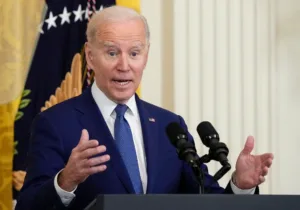While in Iraq in November, I received word that Prime Minister Abel Abdul Mahdi was ready to make concessions regarding Iranian influence in Iraq. But it was too little too late. After 40 protestors were killed by security forces, Iraq’s top Shi’ite cleric Grand Ayatollah Ali al-Sistani called for his removal. Mahdi then announced he would be submitting his resignation. Will this next government represent all of Iraq or continue to defer to Iran?
In August I was part of an official delegation with the US Commission on International Religious Freedom, where I serve as a commissioner, to speak in Baghdad at the Yazda Five Year Commemoration of the Yazidi Genocide in Sinjar. My trip last week, however, was in my own personal capacity to investigate current conditions for religious minorities in the Nineveh Plains. While driving between Mosul and Erbil, I passed through 11 checkpoints manned mainly by militias loyal to Iran. The word “militia” can be misleading, as this is not the kind of volunteer groups found in the United States. These militias, also called the Hashd al-Shaabi or Popular Mobilization Forces or Units (PMF or PMU), have their salaries paid by the Iraqi government, but most take their orders from religious leaders in Tehran. This summer the prime minister issued a decree demanding they come under the Iraqi Security Forces by July 31, which was widely ignored. It should be noted that many Iraqis have served honorably with these forces, especially in the fight against ISIS, or those currently employed with no other job prospects. The plan for their removal must be strategic and careful in order to avoid a repeat of the army dissolution disaster of 2008.
While some militias predate ISIS, others were created, trained, and armed in order to fight the Islamic State, some even trained by the United States. The Caliphate has been destroyed, and yet Christians, Yazidis, and other religious minorities—or “components,” as they prefer to be called—have not been able to return home because of the presence of these forces. In fact, Christians continue to leave the Nineveh Plains each week because of safety concerns. While ISIS committed genocide focusing on those they considered to be “infidels,” these militia members target the same community with harassment and violence. This past July, the US government sanctioned two militia leaders from the 30th Brigade and the 50th Brigade under the Global Magnitsky Human Rights Accountability Act for a variety of abuses, including “physical intimidation, extortion, robbery, kidnapping and rape,” looting and selling land illegally, and other actions.
The 2019 Iraqi budget allocates $2.16 billion to fund over 50 different militias with official reports of 150,000 members, although some put this number to be as low as 85,000. Either way, it is a substantial force outside Iraqi government control. Funds above the salaries and expenses are likely split between Tehran and lining the pockets of the corrupt militia leaders. This is during a time where water, electricity, and other essential services are unreliable. It is no wonder that thousands of young Iraqis have taken to the streets to demand the end of corruption and Iran’s influence in their country. It is the only chance for Iraq to become a stable and successful country.
Last year Vice President Mike Pence directed the United States Agency for International Development (USAID) to disburse funds in the Nineveh Plains to help Christians and Yazidis rebuild their homes and communities. With over 1.5 million Christians in Iraq before the US-led invasion in 2003, there are now fewer than 200,000. While some report that 50 percent of the 120,000 Christians have returned to the Nineveh Plains, officials on the ground believe the return is actually lower, with a sharp gap between the two main Christian districts. In Hamdaniya approximately 40 percent have returned, but only 5 percent have in the Talkaif District. The Yazidi community has also been devastated with only 10–20 percent having returned and most still in internally displaced person (IDP) camps in Kurdistan, a full five years after they were driven from their homes.
USAID’s results in Iraq have been impressive. They have assembled reliable partners in order to rebuild homes, community centers, family farms, businesses, schools, and even just completed an investment conference focusing on the Nineveh Plains. By every benchmark, they are meeting their goals but are running into one major problem: Christians, Yazidis, and other religious minorities are still not able to return because of the security concerns created by these militias.
The United States and the international community could make a difference in the future of Iraq by informing the incoming government that there will be no investment or access to capital markets until these militias, and Iranian influence, have been eliminated. Then plans need to be made for religious minorities to have a role in their own governance. Imagine how quickly Iraq could rebound if funds were treated as investments in the people and the economy—instead of payoffs to corrupt politicians and Tehran.







 Sponsor a student for Christianity & National Security 2024
Sponsor a student for Christianity & National Security 2024